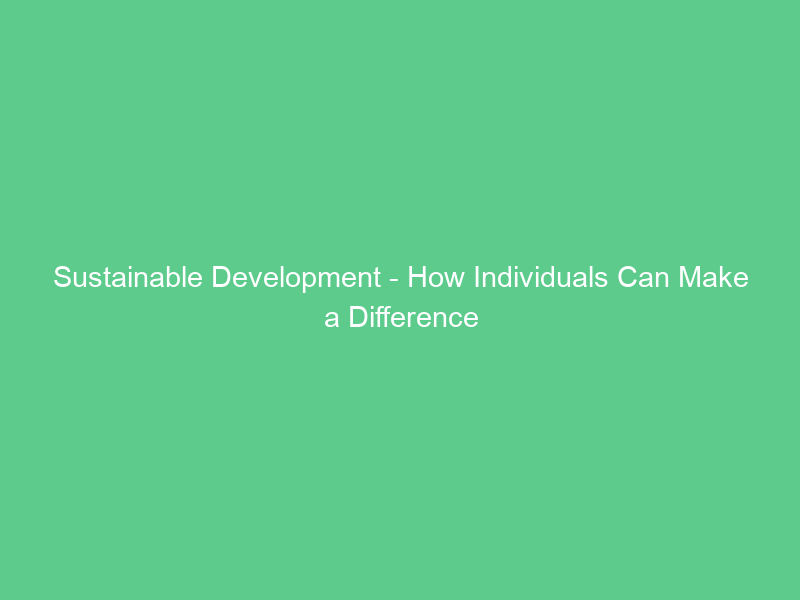Sustainable development seeks to accelerate progress while mitigating its environmental impact. It includes 17 global goals by 2030 that require system-wide changes, but individuals can take small steps toward meeting them.
These goals include the reduction of poverty and inequality, combatting climate change and protecting biodiversity, as well as education, clean energy production and decent work opportunities.
Economic growth
People today are seeking ways to balance economic development without harming the environment, with one key goal of the UN’s Sustainable Development Goals (SDGs) being environmental sustainability.
Goals to address sustainability include no poverty, zero hunger, quality education for all children and sustainable cities and communities with responsible consumption and production as well as energy efficiency and climate action as its foundation. Each target or indicator provides countries a means of measuring progress towards sustainability.
Step one in meeting these goals is building a culture of sustainability. This involves cultivating trust with employees, customers and the community by way of transparent communication and inclusive decision-making processes. A solid cultural base ensures everyone involved with sustainability initiatives are aligned towards common environmental, economic, and social objectives; furthermore it increases engagement and loyalty – as more stakeholders participate actively, the faster your company will reach its sustainability goals and ultimately attain greater business success.
Environmental protection
Environment protection is a cornerstone of sustainable development, supporting Sustainable Development Goals 3 (Healthy and Wellbeing), 6 (Water and Sanitation), and 7 (Affordable and Clean Energy).
Ecosystems are fundamental for human existence on this planet. Not only do they provide us with food, clean water and shelter but they can also mitigate natural disasters while creating a stable climate – not to mention protecting biodiversity and natural habitats!
Sustainability means meeting today’s needs without jeopardizing future generations’ ability to meet their own. This concept was first presented in the 1987 Brundtland Report and has since expanded into 17 global sustainable development goals known as pillars, domains, or aspects. Sustainability can not only benefit individuals; businesses can use its principles as an effective strategy to optimize operations, drive efficiency gains and reduce environmental impacts in an attempt to meet global sustainability goals.
Social justice
Sustainable development strives to build an economy that fulfills people’s needs while being environmentally-friendly, yet this goal cannot be accomplished without first addressing inequality’s roots such as systemic bias and racism that keep resources from reaching frontline communities. Therefore, collective frameworks for social progress must include grassroots-led analyses of problems using democratic methods that identify solutions.
Echoing Green believes that collective pursuit of justice is essential to creating a sustainable world. By working towards justice together, we can overcome imbalances of power and end exploitation of fellow humans – including disparities in wealth, power and access to basic services; violence against women; oppression against LGBTQIA+/Two-Spirit communities and indigenous populations.
Peace
Peace is a multidimensional concept that encompasses social, economic and environmental considerations. Peace can be defined as an end goal that involves access to quality education and health care, gender equality and protecting biodiversity; reduction of poverty hunger inequality while at the same time combatting climate change while guaranteeing universal access to clean energy and water supplies.
Peace requires the equilibrium of powers, which can be challenging when threatened by conflict and violence. Peace can take many different forms depending on culture, context and ideology – for instance religious and political perspectives may view peace differently.
As part of globalization’s challenges, building peaceful and inclusive societies is of critical importance. This means promoting sustainable development goals, forging global partnerships, and cultivating an atmosphere of peace – laying the groundwork for economic growth, climate change mitigation efforts, and social advancement. Peace provides the basis of economic progress while simultaneously contributing to social progress.

